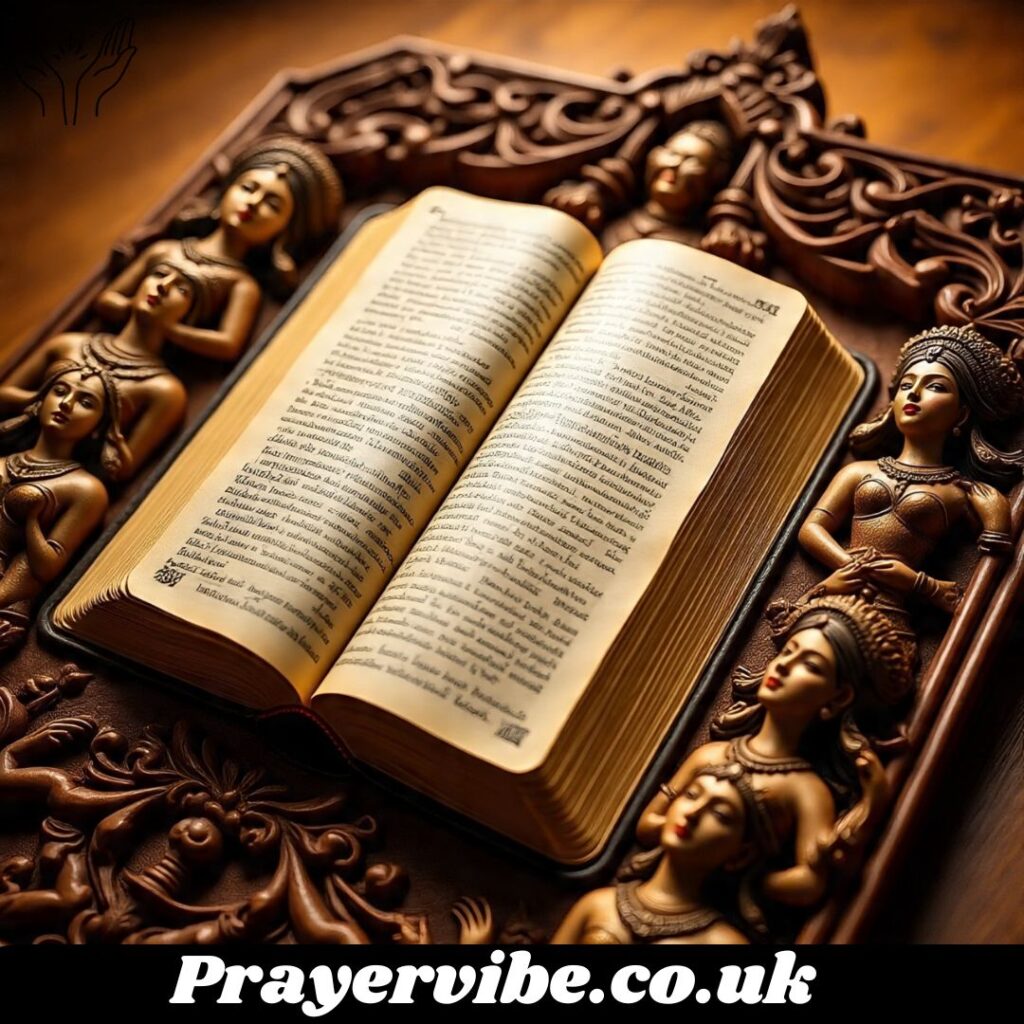The Bible contains numerous references to concubines, especially in the Old Testament. These women held a distinct social and legal position, often serving as secondary wives or servants in ancient patriarchal societies.
While modern readers may find this concept challenging, understanding the historical and cultural context helps illuminate biblical teachings about marriage, relationships, and God’s ultimate plan for humanity. ✨
🙏 Divine Prayer Generator
Select a prayer category to begin
What Is a Concubine in the Bible? 🤔
A concubine was a woman who lived with a man in a recognized relationship but lacked the full legal status of a wife. Concubines were typically servants or women taken as secondary wives, primarily for childbearing purposes. They received some protection and provision but weren’t equal to primary wives in status or rights. 👥
Reasons Concubines Were Taken in Biblical Times 📋
Barrenness of the Wife 🤱 – When a man’s wife couldn’t conceive, he might take a concubine to bear children.
Political Alliances 👑 – Kings often had concubines to strengthen diplomatic ties between nations.
Economic or Social Security 💰 – Some women became concubines to secure provision and protection.
Despite these practices, God’s original design for marriage in Genesis 2:24 was for one man and one woman to unite as one flesh. 💑
Notable Bible Verses About Concubines 📚

Several passages mention concubines, revealing their roles and the consequences of polygamous relationships.
- Genesis 16:3
“So after Abram had been living in Canaan ten years, Sarai his wife took her Egyptian slave Hagar and gave her to her husband to be his concubine.”
💬 This verse introduces Hagar, the servant of Sarai, who becomes Abraham’s concubine and bears him a son, Ishmael.
- Genesis 25:6
“But while he was still living, he gave gifts to the sons of his concubines and sent them away from his son Isaac to the land of the east.”
💬 Abraham acknowledged his concubines’ children, though Isaac remained the heir.
- Genesis 35:22
“While Israel was living in that region, Reuben went in and slept with his father’s concubine Bilhah, and Israel heard of it.”
💬 This act by Reuben had serious consequences and impacted his future inheritance.
- Judges 19:1–2
“In those days Israel had no king. Now a Levite who lived in a remote area… took a concubine from Bethlehem in Judah. But she was unfaithful to him…”
💬 This tragic story highlights the cultural context and mistreatment of concubines.
- 2 Samuel 5:13
“After he left Hebron, David took more concubines and wives in Jerusalem, and more sons and daughters were born to him.”
💬 King David, though a man after God’s heart, had multiple wives and concubines.
- 2 Samuel 15:16
“So the king set out, with his entire household following him; but he left ten concubines to take care of the palace.”
💬 These concubines were later caught in the political fallout during Absalom’s rebellion.
- 2 Samuel 16:21–22
“Ahithophel answered, ‘Sleep with your father’s concubines whom he left to take care of the palace…'”
💬 A moment of political disgrace, used as a symbol of Absalom’s defiance.
- 1 Kings 11:3
“He had seven hundred wives of royal birth and three hundred concubines, and his wives led him astray.”
💬 Solomon’s large harem is noted as a turning point in his spiritual downfall.
- 1 Chronicles 3:9
“All these were the sons of David, besides his sons by his concubines. And Tamar was their sister.
💬 A summary of David’s children, distinguishing those from concubines.
- Judges 8:31
“His concubine, who lived in Shechem, also bore him a son, whom he named Abimelek.”
💬 Gideon’s concubine bore Abimelek, who later became a controversial ruler.
Does the Bible Condone Having Concubines? ❓
The Bible records the existence of concubines but doesn’t explicitly endorse or encourage the practice. Many stories involving concubines reveal negative consequences: jealousy, family division, and spiritual compromise. While polygamy and concubinage were culturally accepted in ancient times, they were never part of God’s ideal design. ⚖️
God’s Design for Marriage 💒

- Genesis 2:24
“That is why a man leaves his father and mother and is united to his wife, and they become one flesh.”
💍 God established marriage from the beginning as a sacred, lifelong union.
- Proverbs 18:22
“He who finds a wife finds what is good and receives favor from the Lord.”
🌸 Marriage is a blessing and a gift of favor from God.
- Ephesians 5:25
“Husbands, love your wives, just as Christ loved the church and gave himself up for her.”
❤️ True love in marriage is sacrificial and selfless.
- Ecclesiastes 4:9–10
“Two are better than one… If either of them falls down, one can help the other up.”
🤝 Marriage is a partnership of support, strength, and shared purpose.
- 1 Corinthians 13:4–7
“Love is patient, love is kind… It always protects, always trusts, always hopes, always perseveres.”
💗 These verses define the foundation of a godly marriage — genuine, enduring love.
- Hebrews 13:4
“Marriage should be honored by all, and the marriage bed kept pure, for God will judge the adulterer and all the sexually immoral.”
⚖️ God calls for purity and honor within marriage.
- Malachi 2:14–15
“…She is your partner, the wife of your marriage covenant… So be on your guard, and do not be unfaithful to the wife of your youth.”
🛡️ Marriage is a sacred covenant, not just a contract.
- Matthew 19:6
“So they are no longer two, but one flesh. Therefore what God has joined together, let no one separate.”
🔒 God’s intention is for marriage to be lasting and unbreakable.
God’s blueprint for marriage has always been monogamous, committed, and lifelong. 💕
What Can We Learn from These Verses? 🎓
Human choices often create conflict ⚡ – Biblical figures frequently experience family strife due to polygamous relationships and competing loyalties.
God’s grace extends to all situations 🙏 – Despite human failures and cultural practices, God continued working through imperfect circumstances to accomplish His greater purposes.
Faithfulness in marriage reflects God’s character 💎 – The New Testament emphasizes love, commitment, and faithfulness as the standards for Christian marriage.
Cultural practices don’t determine God’s will 🌍 – Just because something was common in biblical times doesn’t mean it aligned with God’s perfect plan.
Final Thoughts
Though concubinage existed throughout biblical history, Scripture ultimately points toward a higher standard of love and commitment in marriage. The stories of concubines serve as both historical records and moral lessons, showing us that God’s grace can work through imperfect situations while still calling us to His perfect design for relationships.
Modern believers can learn from these accounts by pursuing faithfulness, commitment, and godly love in their marriages, reflecting Christ’s relationship with the church as the ultimate model for marital union.

Daniel Miller is a passionate writer, SEO expert, and blogger, specializing in Bible verses, prayers, and faith-based content at PrayerVibe.







